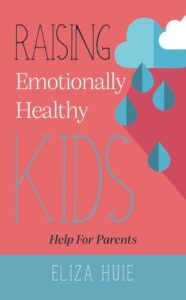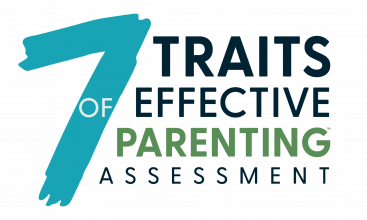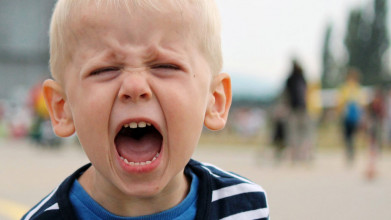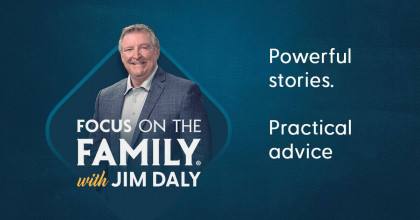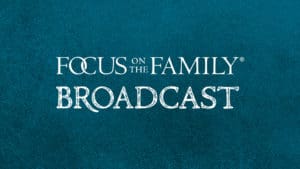Eliza Huie: Seeing your child’s emotion is an opportunity to see their heart, but it’s also an opportunity to see your heart as well.
Jim Daly: Yes.
Eliza: And so to always recognize that God is doing something with everybody in the room, which includes you, Mom, and it includes you, Dad. So God is something with you.
John Fuller: That’s Eliza Huie, and she’s our guest today on Focus on the Family with Jim Daly. Thanks for joining us. I’m John Fuller.
Jim: Here’s a billboard, emotional health is really good. (Laughter) I mean, and you know what? We spend a lifetime moving that direction, especially as Christians. We’re hoping to overcome things and to live a good Christian life and to be honest people, people of integrity. And we want our children to be there too. And today we’re gonna cover how to raise emotionally healthy kids. And what parent doesn’t put their hand up to say yes, we want that. And today, as part of our mission at Focus on the Family, we wanna equip you as a parent to do the best job possible…
John: Mmhm.
Jim: as you equip your children spiritually, emotionally, physically, to live a good life.
John: Yeah. And Jim, we didn’t plan on talking about this, but let me just say this is one of those topics I wish I had known about 30 plus years ago,
Jim: Mmmm.
John: because if I could have a redo, it would be to go here and to start to talk with my children at a young age about emotional wellness and give them the palette of conversation…
Jim: That’s good.
John: that I don’t have from their childhood. But we’re working on now.
Jim: I would too, me too, sign me up.
John: So our guest today is Eliza Huie and she’s a licensed clinical professional counselor. She’s the Director of Counseling at McLean Bible Church in the Washington D.C. Area. She teaches counseling at the college level and has a podcast, and she has written a number of books. She knows a lot about the topic, and she’s condensed, this is really key, she’s condensed a lot of this knowledge into a very small, very helpful practical book called Raising Emotionally Healthy Kids: Help for Parents. Learn more about Eliza and this terrific book at FocusontheFamily.com/broadcast.
Jim: Eliza, it’s good to have you back to Focus on the Family. Thanks for being with us.
Eliza: Absolutely, I’m glad to be back and talk with you guys.
Jim: Yeah, let’s start with the foundation of research. It kinda lays, uh, it paints the picture.
Eliza: Yeah.
Jim: Let me say it that way for the listener, the viewer on YouTube. Give us some of the stats on anxiety, depression, and mental illness. What are some of data points that we’re seeing?
Eliza: Well, sadly, we are seeing a significant trend in mental health issues, specifically in children. It was that there was a study that showed within a 10-year period, 59% of, there was 59% increase of children dealing with anxiety, depression, mental health struggles. And let’s just be honest, if in a matter of 10 years, we saw a 59% percent increase of, let’s say, childhood diabetes or childhood cancer diagnoses, we would be scratching our heads and diving into what is going on, right? So that’s really where I think a lot of parents are feeling that, but certainly, people in the professional world as well are saying, okay, what’s going on here? This is a significant increase. One in three kids will have a diagnosis of anxiety disorder by the time they’re 18. I have three children. So, like, the statistic is very real for me even, just thinking about that. So that just where we are. It’s, I think, not something that’s going to take anybody who’s listening or watching by surprise, either.
Jim: You know, this is an unfair question, so I’m gonna tell you ahead of time. It’s gonna be a hard one to answer in that, when you look at all of this, I think of John 10:10. That was a verse that was written in my first Bible as a 15-year-old by a mentor of mine who said, here’s the big statement, and it’s a big one today. You know that the thief comes to steal, kill, and destroy, but I’ve come that you might have life and life more abundantly. Statistically, most of us are not gonna be murdered. Thank you, Lord, but emotionally this applies that he comes to steal, kill you emotionally, and I think when you look at that data, especially for our children,
Eliza: Yeah.
Jim: … our teens,and our 20 somethings, particularly; you put it in that context the enemy of our soul is after our children.
Eliza: Oh yeah!
Jim: Speak to it in that way. What is happening in our culture that you would see, from a spiritual context of 59 percent increase in these situations? It’s like, Lord, where are you?
Eliza: Yeah, it can certainly feel that way. And yet it can also feel like, okay, we can ask that question, Lord, where are you? Because that, you know that just naturally comes to us. But we also need to ask the question, like, where is the other things in our lives compared to the input, the time, the, the energy towards the things of spiritual grounding that the Bible has for us? So what I mean by that is, what is coming at us more frequently? Is it the John 10:10 verses of just like that reminder of who God is, is it the mentors who are pointing us to truth and spiritual hope, or is what’s coming at us a constant flow of anxiety producing information, expectations, and, um, even just like pressure on our kids? And I would say, if you took any kid and said, do you feel more inundated with God’s word and who you are as a child of God or what it means to follow Jesus, are you more in inundate with messages of that? Or are you more inundated with messages of measure up or perform or, you know, this is what’s happening in the world? Certainly mental health. I will tell you that mental health is talked about way more than it ever was when I was a child. And in some ways, that’s really good. Like, we can acknowledge, that’s good. We’re talking about these things. But in other ways, I have 10, 11, 12-year-olds who I can talk to in a counseling room who know more about diagnoses than I… I had never had a clue even existed when I was their age.
Jim: Wow. That’s interesting.
Eliza: So it’s just very prevalent. And I think when you think about what your question was, it’s like, what is coming at us? What’s filling us? And especially our kids.
Jim: And I want to make sure I, you know, I’m playing the opposition there to give you that ability to hit the ball, right? But I think also, you know, when I think about that, the Lord doesn’t leave us unprepared.
Eliza: Mmm.
Jim: And I don’t think the Lord makes mistakes with the generation of souls he’s got on this earth at this time. Right? It’s all purposeful for him. And I think in that we find our identity, et cetera, as Christians, as believers. So in those, uh, scriptures that say, fear not. Do not be anxious, for I have overcome the world. (Chuckles)
Eliza: Yeah.
Jim: Yeah, you know, you look at that and you go, okay, Lord, I wanna trust that,
Elisa: Yeah.
Jim: … but can you show me a little more?
Eliza: Yeah.
Jim: That kind of attitude. So in that context, I mean, having the peace of God, no matter circumstances,
Eliza: Yeah.
Jim: is really what the shalom, the peace,
Eliza: Yes!
Jim: … of God is all about. And, uh, I guess the whole battle is about how we struggle to find that.
Eliza: Right. It is. And there is something to being anxious in a way that is I’m concerned about the things God is concerned about.
Jim: Yes.
Eliza: And then there’s the anxiety that we’re talking about. The anxiety that overwhelms, that anxiety that tends to kind of cripple our children and more and more parents are feeling this. I mean, like I said, the statistic, one in three, that’s… most parents are gonna probably have a child who, even if it’s just for a season, has faced a lot of anxiety.
Jim: Let me ask you, when you were pregnant with your first born, I believe a nurse slipped a note into your hand at the birthing center. I’m not sure exactly, but tell us that story and what was the note?
Eliza: Well, they gave me all of these great helpful tips on how to prepare for sleep, how to bathe the baby, which I needed that. Like this was a piece of paper that, this is all we, by the way, this is all we were sent home with.
Jim: Isn’t that crazy?
Eliza: I was a little, yes.
Jim: Here’s your piece of paper…
Eliza: Piece of paper…
Jim: … about how to raise a child.
Eliza: … and it literally was one page, single sided. There wasn’t even two sides to it. And it had some things on helping with burping, and batheing, and dressing, and feeding, and sleeping. But nothing, and you alluded to this even at the beginning, that there was nothing about how to navigate their emotions or their mental health. It was all about their physical health, their physical wellbeing, which is good, because goodness gracious, we need to keep them alive when we’re sent home with these little ones. But we need to, as you mentioned, help them to thrive, and there was nothing talked about, and so yeah, definitely feel ill-prepared.
Jim: Yeah, you know, the uh, I think the challenge, it is kind of weird that you go take your driver’s license test, you got a book that’s probably 100 pages, right? That funky driver’s training booklet. But you have a baby, there’s nothing but a piece of paper. But I think that’s one of the reasons, certainly why we concentrate on parenting, but how do we equip, especially a first-time parent, both mom and dad, how do we focus as parents on the full child, the spirit, the emotional part of the child, the physical part of child. I mean, that’s what we’re trying to do, right?
Eliza: Yeah.
Jim: Ho… how do we go about getting our focus on the right things as the parent of the newborn, of the first born?
Eliza: Well, and this was something that was maybe new to my generation. I think the next generation of parents is starting to be a lot more in tuned to this, but we didn’t have any context for how to handle emotions or even talk about emotions. So, one of the things that you can do is to, yes, you’re gonna care for them physically. And probably there’s the reality that you just need to keep them alive is gonna keep you caring for them, physically. But you do need to care for them emotionally, which means you start early talking about emotions with your kids and you can do that by simply identifying, when you have a little child who’s maybe just a year old, you can start giving them words for the things that they are doing. So you see them they, they’re trying to put the block in the little hole that it goes in.
Jim: The square peg
Eliza: Yeah.
Jim: in the round hole.
Eliza: Exactly, they’re frustrated and they’re getting mad with this block, or whatever, and you see them kind of pounding on this block. You can actually say the words that they don’t have. Are you angry or you look upset? You know, so that they begin to see, even at a young age, we talk about emotion words, because too often I think, people in our generation have the experience of we …we didn’t talk about emotions, and if there were emotions, if we were talking about them, it was like stop that. Stop that emotion.
Jim: Right. That’s weakness.
Eliza: Unless it was a happy emotion we only talked about what we would consider quote-unquote positive emotions. If we if you had positive emotions, we could talk about those, but if we had negative emotions, it was kind of a stop that kind of thing.
Jim: Yeah, that’s true. You know, one thing that we have here for parents that I’m really pleased with, it’s something we have worked on for a long time, but it’s age and stage content. And so, boy, if you’re a parent of children between zero to 18, sign up, it’s free, and we’ll send you weekly emails and give you an idea of what your child at two will be experiencing, the terrible twos, what does that look like? I mean, it is a primer on being that parent.
Eliza: That’s so helpful.
Jim: But in that context, let me ask you specifically, and you’re tilting into that for toddlers, zero to three, four, that toddler period.
Eliza: Yeah.
Jim: You also talk about the emotional sheet. Now, I did not know these were actually out there. You could buy them.
Eliza: Yeah.
Jim: Like smiley face, sad face,
Eliza: Yeah.
Jim: … embarrassed. So every time I want to talk to my boys, I would draw these out
Eliza: Yeah.
Jim: … in my very weak ability to draw. But it’d be the happy face, the sad face. And then we had fun with it with … the kids. But I just did it without really realizing that this is one of the core things that helps a young child, particularly,
Eliza: Absolutely.
Jim; … point to what they’re feeling.
Eliza: Yeah.
Jim: Add, add some contour to that.
Eliza: Yeah, I think that’s so key because you’re modeling for them, and that’s not only do we wanna point it, but we want to show them that we talk about those things too. And so, I think sometimes parents can feel that we need to not show anything, again, but positive emotions towards our children, and that not necessarily true either. And so just being able to help them understand that yes, we can talk about it, and yes, mommy and daddy can talk about their own emotions. But I think another thing that is key in that early age of development is to recognize that you’re gonna get it … it’s … you’re in a little bit of a guessing game at that point.
Jim: Yeah, that’s fair.
Eliza: Because… I share this tiny bit in the book about a cry at that age, like, you know, zero to two, can be sad, can be like I’m hungry,
Jim: Right!
Eliza: … can be I’m angry.
Jim: I have a dirty diaper. (Laughs)
Eliza: It can be I have a… I’m uncomfortable sitting in this mush.
Jim: Right.
Eliza: Exactly! It can even be I am so overwhelmed by something that, I, you know, I, or maybe I get startled, and I cry, or maybe I’m very happy and then it starts to turn to cry. You’ve seen people when they tickle their baby, and they tickle them just a little too much and then they start to cry. (Laughs)
Jim: Yeah.
Eliza: It’s like you were happy just a second ago.
Jim: Yeah.
Eliza: So just recognizing that as parents you need to be an investigator and not just assume that what you see equals the emotion you think, and so trying to kind of … I, I share the story about one time my, my son who was otherwise very, very content was really agitated through this meeting that I had to bring him along in, and I thought man he he’s usually so good. Why was he so upset? Well, it turns out the whole time he knew that he was not allowed to play with Legos, because he was too little to play with Legos, but his older brother and sister had Legos. Well, he had found those Legos before we left for this meeting, and he had stuffed them in his diaper.
Jim: Oooo! Oh well, uh.
Eliza: And so he put them in his diaper and then he had to sit on them through the whole meeting. (Laughter) Well, no wonder, but he didn’t really want to tell me or give up what he was, it wasn’t until we got home.
Jim: How old was he?
Eliza: He was probably about a year and a half or so.
Jim: Well, that’s good.
John: Sounds like he’s got some really strong resilience.
Eliza: I just. . .
Jim: He’s getting ready for the cookie jar. I’m getting those cookies, no matter what.
Eliza: Yeah. So I had to be an investigator in that.
Jim: Let’s move that up a little bit. And I so appreciate that. And again, you can sign up for Age and Stage. This is exactly the kind of content, zero to four, what do you do?
Eliza: Yeah,
Jim: Let’s move to that four to seven range where a little better cognitive skills.
Eliza: Yes.
Jim: So emotionally again, we’re talking about emotionally healthy kids, how to build that. What are you doing for the four to 7-year-old who can actually begin to argue with you ,,
Eliza: Yeah.
Jim: … and ask questions.
Eliza: Yep! One of the things that four to sevens do that we sometimes aren’t prepared for but are so helpful for parents to be able to understand and kinda lean into, is that they begin to empathize in that age. They begin to recognize somebody else’s feelings and be able connect with them. And so just helping them to understand those… that that’s what’s happening in this person and that’s why they feel this way. So empathy is really big. Another thing in that and I’ve written another children’s book on this (called, Count Yourself Calm), is to be able to help them take those feelings and manage them. Because I think in that four to seven, that’s a lot of the times where their feelings are getting a little bit bigger. They have some words, but not enough to really explain what’s going on. And so just being able to help them process and manage those big feelings in a way, and that book, in particular, points them to the Lord in scripture that kind of ties it in. But, yeah, managing them, understanding that they’re empathizing a little bit more, they’re starting to grow, and you’re starting to be able to have a little more conversation about, about emotions and feelings.
Jim: That later stage, 8 to 11, which really kind of covers those early years.
Eliza: Yeah.
Jim: How are you speaking to that child to encourage emotional well-being?
Eliza: Yeah. At this stage, you’re able to interact with them a whole lot more. They care about their peers, uh, the way that people think about them. So they care about what other friends think about them. So they’re not just empathetic, but now they’re, like, aware of their own, like, appearance. They start to be aware of those things, and it impacts them more what other people think of them. And this is sort of like you’re starting to touch on puberty at the end of this stage.
Jim: Yeah.
Eliza: So it’s important to recognize that not everything you see is exactly how they really feel. Like this might be context related. And so giving them some options as well, like hey, do you wanna talk about this now or do you want to talk about it after you, you know, after you change your clothes and put your homework away or whatever. Giving …starting to give them some options, helping them notice, I noticed when you came home today that you seemed really down. Is there anything you wanna to talk about like you’re actually drawing them out a little bit more. They’re gonna be a little more willing in this stage to talk about their emotions.
Jim: What I like about that is many people that have sat right where you’re sitting talking about being specific with those kind of questions.
Eliza: Yes!
Jim: Don’t just ask general questions. It feels like you’re sad, can you tell me?
Eliza: Yeah.
Jim: Or do you wanna tell me about something that happened today? That’s much better than just saying, how was school?
Eliza: Right! Right.
Jim: So pretty critical.
Eliza: Yes. Taking any, and you don’t want to necessarily ask the why questions, because they don’t know why. That’s just the bottom line.
Jim: Yeah. They’re only 10.
Eliza: Exactly, but you can take the same why question like you might want to ask the why question. Why are you so upset? Well, they probably don’t know why they’re so upset.
Jim: Yeah.
Eliza: So instead of taking that as a why question, we just turn that around a little bit and say so what’s making you upset right now? And it allows them to kind of explore it, or what about that circumstance was upsetting to you? Give …name one thing about that circumstance that made you really upset and then you’re no longer asking the why but you’re getting the same question. Yeah, basically
John: Mmhm. This is Focus on the Family with Jim Daly and Eliza Huie is our guest today talking about raising emotionally healthy kids. That’s the title of her book get a copy of it from us here at the ministry when you call 800 the letter A in the word FAMILY or stop by FocusontheFamily.com/broadcast
John: Eliza we’ve worked through the younger ages and now we come to the stone monolith which expresses no emotion whatsoever
Eliza: Yes.
John: … or every emotion simultaneously.
Eliza: Yes.
John: I don’t know how we lived but through it all, but we had six teenagers
Eliza: OH!
John: … throughout the years, so talk about the teen years because that’s just a whole different ball game.
Eliza: It sure. Probably one of the biggest ones that shows up in my counseling room, though It is starting to get younger and younger. Parents are saying I want to know how to walk with my child in their emotional health earlier. But let’s just be honest, teenage years puts it on full display. It just does. And a couple things I’ll say, the first things I want say to parents, or I do say to parents, is that I, I will often pull out a little Q-tip that I’ll, I’ve kept them in my Counseling room before, and I’ve asked them, “What is this?” And they’re like, it’s a Q-tip. Why are you pulling it out? That’s so weird. And I was like, okay, so then I’ll write it on the board. Q-T-I-P, which stands for quit taking it personal. And then the last thing I would say to parents in this stage is, we … this is true of any stage. So take this for any, but specifically in the teenage stage. Do not match your child. So if you’ve got a child who’s coming at you with some high emotions, it’s so easy to just like, it’s sort of like when somebody has a, a conversation and somebody raises their voice, then somebody else gets a little louder, and somebody else get a little louder. We can do that with our emotions. Don’t do that. That is not helpful.
Jim: Let me ask you that additional tip, because I think that’s really critical. I can think back to times that I… It was so ridiculous. I mean we got into, again, it seemed to be Trent was the guy. Troy just kind of went right under the radar. (Laughter) Mr. Compliant child, but Trent was always in your face saying I don’t, I don’t believe that you know. I can remember the experience there. We, we got Into something. He was so good at pushing both Gene and I’s buttons, you know, just poof ratchet up. And then we’re into this, like, ridiculous emotional fight with him, at 11, 12, 13, and I can just remember thinking okay I’m the adult here why am I acting like I’m his classmate? I’m, like, in this duel about whose pencil it is; it’s ridiculous! What can parents do, the adult, to back up from that and not get taken in …
Eliza: Yes.
Jim: … into that hormone infused
Eliza: Yeah.
Jim: …discussion, I mean, how do we … what triggers can we use to say, okay, I’m not going to get into this right now.
Eliza: So I …
Jim: Back up. But what do you do? What do we do? What do you coach parents to do?
Eliza: So one of the things, I already mentioned, that seeing your child’s emotion is an opportunity to see their heart, but it’s also an opportunity to see your heart, as well.
Jim: Yes.
Eliza: And so to always recognize that God is doing something with everybody in the room, which includes you, Mom, and it includes you, Dad. So God is something with you. And so if you can begin to view your parenting in that way, then when you start to feel yourself, we all know what it feels like when our blood pressure goes up, it’s maybe in our face, maybe it’s in our neck, maybe it’s the tension in our shoulders. We all have those telltale signs. What are you going to do in that moment? Is… whatever you do in the moment shows your child what to do. So I encourage parents, step away from that situation when it becomes too elevated or too escalated. Step away not in an angry way, not in a huff I gotta leave the room, slam the door. No, that’s bad modeling. We wanna step away in a way that shows them it’s okay to create space, to be able to step out, take a walk, we know that, that neuroscience shows us that we can change our brain with just a few deep breaths. So get outside, take a few, deep breaths, say a prayer, ask God to help you, ask God remind you, God, I know this is an opportunity for me to model for him, for me love him or her. We don’t wanna just stereotype it there. But yeah, to be able to say God, I know you’re already in this situation, help me to be more aware.
Jim: It reminds me of a cartoon where you have this conflict and, you know, the parent, in this case, runs outside, slams the door, walks around the block, comes back and picks it up from there.
Elilza: Yeah.
Jim: It’s almost cartoonish. Let me ask you, extended family.
Eliza: Mmm
Jim: I’m gonna ask this question this way. Cousins and things like that. Yeah, things happen. The kids are playing, and things can happen. Do you find a unique opportunity there? Because they’re coming from a different family.
Eliza: Yeah.
Jim: Uh, is there any way to manage some of that? Do you prep the child on, you know, okay, Uncle Buck and Susie aren’t gonna be exactly like we are? What do you do there? (Chuckling)
Eliza: That’s so funny. Yeah, and who hasn’t been in that situation? I would say based on my experience; my husband and I would prepare our kids a little bit. There’s different, they, they allow certain things that we don’t allow.
Jim: Is that emotional protection or how would you classify that?
Eliza: Uh, it could be to some degree, but more so, we’re actually bringing them into the situation in a way that’s age appropriate to be able to say, hey, we want you to be aware of what we’re about to engage in. I think a lot of my parenting, where I feel like it went bad, was when I was parenting out of fear. The fear of exposure to something, the fear of, you know, is that gonna mean that now my kid is gonna do something, or this one interaction with Uncle or Auntie or whatever it is, is going to now ruin my child for a lifetime. And that was motivated by fear. And that is not the way God wants us to parent our children. So if you can even analyze like, Lord, what’s going on here? Am I fearful of something? Because God is able to protect them. And the other thing is that they spend far more time with you than they do with Auntie and Uncle.
Jim: Yeah.
Eliza: And so that one experi …
Jim: And cousins.
Eliza: And cousins. That one experience isn’t gonna shape them like those conversations that you have with them day in and day out. It’s the Deuteronomy six kind of way of walking with them along the way. So guard against parenting out of fear because that can lead to a lot of cliffs that we could fall off of.
Jim: Eiza, let, let’s right at the end here, I think it’s really critical, especially for parents and your kids are going hopefully to church and you know coming home, but they’re exposed to people when you’re not around.
Eliza: Yeah.
Jim: What are some of those professional things being a trained counselor? What should parents look for in behavior…
Eliza: Oh yeah.
Jim: …just to be aware if something may have happened that you weren’t aware of, but the way kids might behave to show you they may need some help.
Eliza: Yeah.
Jim: Maybe even professional help.
Eliza: Sure, so just in general of thinking, maybe there’s something that I’m not seeing or not, not aware of, behavior. When you see behavior, get curious. That’s the best thing that you can do. Don’t get frustrated, don’t get angry, don’t get fearful, get curiosity. And so you wanna be able to kinda lean in and maybe you’re asking some questions, maybe you are watching a little bit more. But some of the behaviors that you’ll see that won’t be words, but will come out in behaviors, are going to be things like change in sleep. That’s a big one. Number one problem that shows that kids are anxious is not them saying, I’m really feeling anxious. It’s their stomach and their head. So they’ll complain of stomach issues that can’t be identified as another medical issue. So you’ve been to the pediatrician, you’ve talked with them, there’s no …but there’re chronic stomach issues. There’s no cause, but it just keeps showing up that they’re dealing with some stomach issues or repeated headaches, but we’ve looked through this. There’s not cause, medically. We’ve checked what we need to check. So those are some of the most common. Behaviors, withdraw, change in interest from their normal interests, or fear that maybe like they all of a sudden don’t wanna be alone, and it’s not just an ages and stages thing; because there are some of those things that are normal. But even thinking about like the area of mental health because I do think parents can feel like, well when do I know is this just anxiety that a kid feels or this is actually a problem? Because parents can see things that you begin to think oh no. If my child, is my child depressed? And if they’re depressed, will this lead to something worse? And, uh, there are certainly times when our kids go through seasons.
Jim: Yeah. Eliza, thank you so much, this is a great primer, Raising Emotionally Healthy Kids: Help for Parents, and it’s readable. I mean, this thing, you can go through this filled with tips and ideas on how to really zero in on your child’s emotional well-being. Thanks for being with us.
Eliza: Thanks for having me and for having this conversation.
Jim: Always! And uh, let me turn to our listeners. Focus on the Family is here for you. We wanna be here for you! Don’t be embarrassed; get in touch with us if you need help. We wanna provide you with the tools and the answers you need, as moms, dads, grandparents to raise up the next generation, and we have lots of resources here for you.
John: Yeah, and one I’ll point out is the Parenting Assessment that’s gonna reveal your parenting strengths and maybe some areas to work on as well.
Jim: Improvement.
John: Yeah. There you go! It’s free and it’s on our website.
Jim: And we all can improve, let me tell you. We also have Eliza’s great book, Raising Emotionally Healthy Kids, which you can get directly from us. We’d like to send that to you for a donation of any amount today. Just a way to get you involved in ministry. When you get resources from Focus on the Family, you’re helping moms like Maryann who wrote in to tell us this. “As a mom I’ve often wondered if I was doing enough to help my child grow up emotionally healthy. The resources and encouragement from Focus on the Family have given me the tools and confidence I needed to guide my son through some tough moments. I’m so grateful for the wisdom I’ve gained here. It’s making a real difference in our home.” And I LOVE hearing that kind of testimony! You can do ministry through Focus on the Family, so get Eliza’s book when you donate today.
John: Yeah, contribute and get your copy of Raising Emotionally Healthy Kids when you call 800 the letter A and the word FAMLY, 800-232-6459. Or online, we’re at FocusontheFamily.com/broadcast. And thanks again for listening today to Focus on the Family with Jim Daly. I’m John Fuller inviting you back as we once more help you and your family thrive in Christ.










